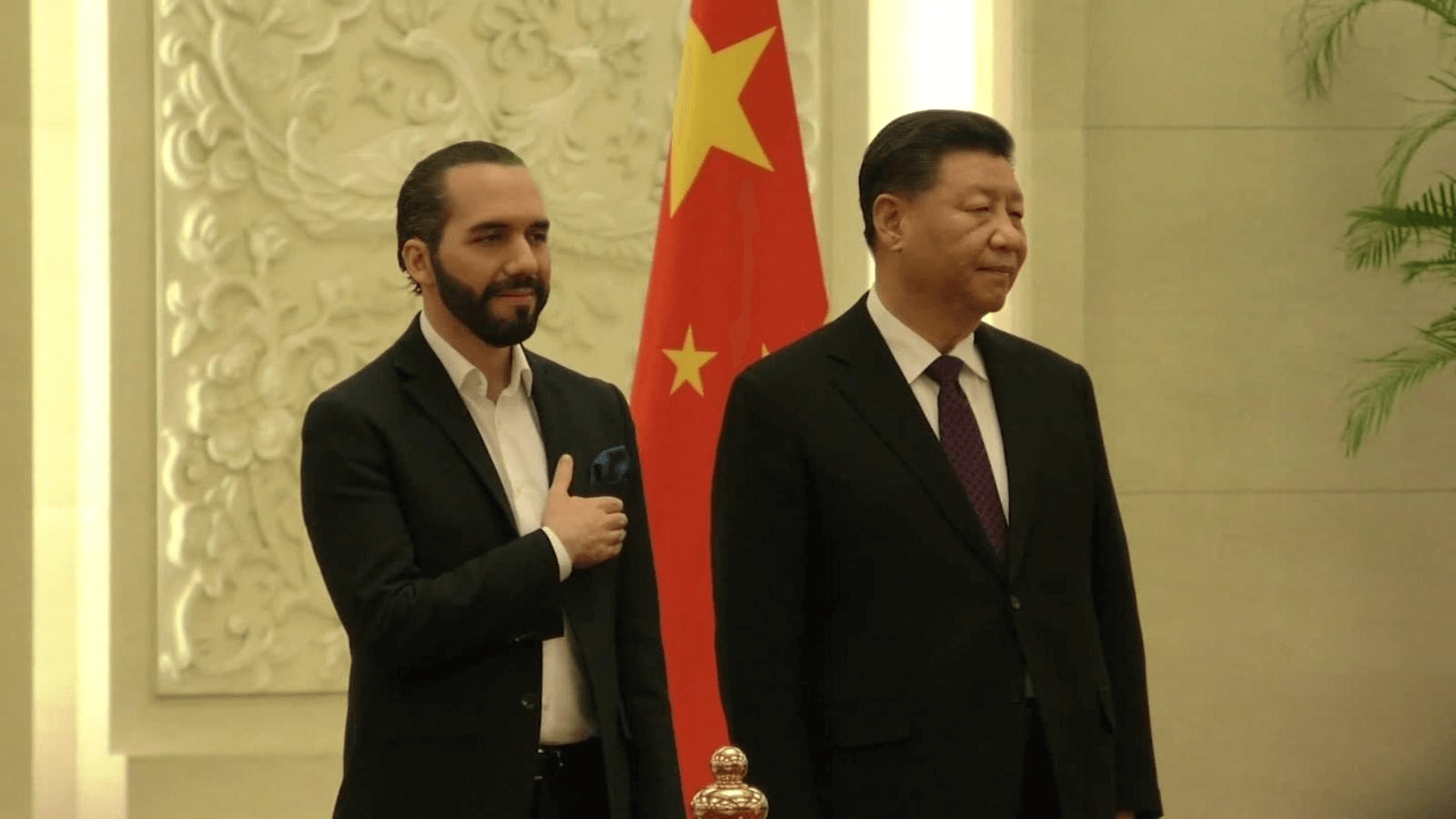Inequalities in the political ties of El Salvador with China
Photo: Presidents Nayib Bukele and Xi Jinping. Source: Wikimedia Commons
The trade relationship between El Salvador and China has historically been imbalanced, with the Central American country proportionally exporting to China just 1.79% of what it has imported from them in the last 25 years.
Despite President Nayib Bukele’s promise to negotiate a Free Trade Agreement (FTA) with China, analysts consider this idea to be a “joke in bad taste” due to the asymmetry in the economic situation. China is El Salvador’s second largest supplier of products, but it is not among the main destinations for Salvadoran exports.
In contrast, the trade relationship with the United States has been significantly more robust, with Salvadoran exports worth more than $55 billion compared to $81 billion received. The United States represents 48% of all El Salvador’s exports in the last 25 years.
Although China has become a strategic partner for Bukele, with funding for projects such as the National Library and other mega infrastructure projects, the economic benefits have yet to materialize as expected.
Despite the fact that its Central American neighbor Nicaragua has signed an FTA with China, El Salvador’s exports to China – mainly sugar and coffee – are decreasing. Experts such as Napoleón Campos, who penned the essay “China’s incursion into the Treaty of North American Free Trade (NAFTA) and its effects on intra-industrial trade”, considers that the agreements with China in Central America lack significant benefits for the economic development of the countries involved.
Campos highlights that China has already achieved its objective of isolating Taiwan in the region, and trade relations with countries like Guatemala could also change following the recent change of government seen in Guatemala.
On the other hand, Bukele has taken advantage of Chinese financing for infrastructure projects, such as the National Library and the National Stadium, to project an image of modernity and development in his quest for re-election. Although questions have been raised about the transparency and conditions of Chinese funds, Bukele has denied geopolitical influence and stated that the cooperation is “non-refundable and unconditional.” However, experts such as Lourdes Molina, in the Prensa Latina media, point out that El Salvador’s financial situation is critical, and negotiations with the IMF could be an option to resolve fiscal disputes.
Ultimately, the relationship between El Salvador and China is presented as a balance between the benefits of Chinese financing for infrastructure projects and the reality of an unequal trade relationship that raises questions about the viability of an FTA.
Bukele’s strategy of approaching China is also interpreted in the context of tensions with the United States, although Bukele’s possible reelection and the success of his megaprojects will depend on public perception and how commercial and financial relations with China are managed in the future.
Main source:
La de China es la relación comercial más desigual que mantiene El Salvador| RPP. (2024, enero 24).
Other related sources:
BBC New Mundo (2024, enero 25)

